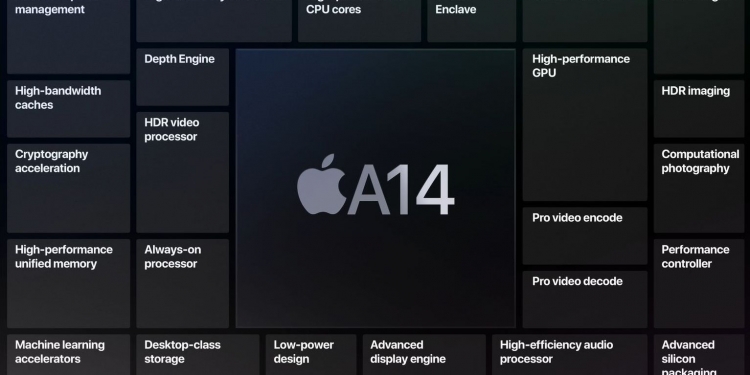When Apple unveiled the iPad Air back in September this year, the main point of interest wasn’t its appearance but what lay within the tablet. It housed Apple’s new A14 Bionic chip, the company’s first chip built on the 5nm process and boasts 11.8 billion transistors, 3 billion more than the A13. This is also the same chip that will power Apple’s upcoming iPhone 12 series.
In a recent interview with Engadget, Apple’s vice president of platform architecture Tim Millet shared Apple managed to pack in more efficient CPU and GPU cores into the processor as well as make subtle improvements to the device’s overall performance.
But this has also raised questions whether the new mid-range iPad is more powerful than its current iPad Pro that runs on the A12Z Bionic chip.
According to Millet, the iPad Pro with the A12Z has more CPU and GPU cores (8 of each) than the A14 (6 and 4, respectively). So, the A12Z, with double the number of GPU cores compared to the A14, would offer the best performance for graphic intensive work.
However, as the A14 comes with Apple’s latest-generation CPU cores, Millet said to be able to outperform the A12Z in some tasks.

Apple has yet to directly compare the A14 against the A13 but it said the chip powering the latest iPad Air is up to 40% faster than the A12 chip, meaning users would see a 30% gain in graphics performance. More will definitely be revealed during the iPhone 12 event.
Apple’s A14 may be the world’s first commercially available 5nm chip but its rivals are not that far behind with Qualcomm getting ready to reveal its Snapdragon 875, a 5nm mobile chipset.
But apart from raw performance gains, Apple is looking at designing its chips so that they work well across different devices. Millet said that the company was focused on energy efficiency to every product they build.
“We try to focus on energy efficiency because that applies to every product that we build. By making that a fundamental focus of its chip designs, Apple doesn’t have to worry about a situation in which it “focused on energy efficiency for the phone [in a way] that’s not going to work in an iPad Air. Of course, it’s going to work.”
The Engadget story also references a rumoured iPad Pro that is said to be powered by a high-performance version of the A14 called the A14X. Some suggests that this chip will make its debut in early 2021. This may mirror the steps Apple took with the third-generation iPad Pro with its A12X chipset that released shortly after the launch of the iPhone XS series which was powered by the A12 chip.
So, what are your thoughts on Apple’s new A14 processors? Will they offer a significant performance gain and compel you to upgrade your devices? Let us know in the comments below.








